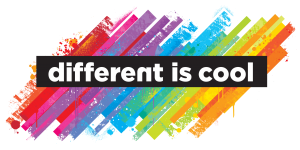For a person who, by his own admission, still could not read at the age of eight, had a “nightmarish” time at school, and left it at the age of fifteen without graduating, Richard Branson has done all right. The flamboyant British entrepreneur’s Virgin brand is one of the most recognizable brands in the world, Virgin Airlines, Virgin Comics, Virgin Records, Virgin Books, Virgin Active, Virgin Balloon Flights, the list goes on and on. There are more than 200 companies in his “portfolio” and every one of them makes money. He’s reported to be worth more than $3 billion.
Perhaps my early problems with dyslexia made me more intuitive: when someone sends me a written proposal, rather than dwelling on detailed facts and figures, I find that my imagination grasps and expands on what I read.
Richard Branson, Losing My Virginity: How I’ve Survived, Had Fun, and Made a Fortune Doing Business My Way,
Why do we call him flamboyant? When launching a new cola drink in the US market, named Virgin Cola, of course, Branson drove a tank into Times Square in New York and fired it at a Coca Cola sign. He once put on a wedding dress to help launch a wedding business.
The golden touch that is the Branson trademark today showed itself early on. In the late sixties, when he was sixteen and already fed up with school, he started a student newspaper in his basement. It made money. The headmaster of the Stowe, the school Branson attended, wrote with admirable prescience: “Congratulations, Branson. I predict that you will either go to prison or become a millionaire.”
The Branson empire we know today began with a mail-order record venture he started in a rented store in London back in 1970. That led to the founding of Virgin Records in 1972. It started with a hit: the recording of Mike Oldfield’s “Tubular Bells” stayed on the British charts for more than four years, and kept the cash flowing for the young company. He signed top artists like The Sex Pistols, Culture Club, Genesis, The Rolling Stones and Simple Minds, before selling Virgin for $1 billion in 1992.
Richard Branson’s appetite for challenge is not confined to the world of business. In 2007 he announced the Virgin Earth Challenge, a $25 million prize to encourage the development of technology that will “result in the net removal of anthropogenic (manmade) atmospheric greenhouse gases.”
That same year he formed a group called The Elders, consisting of Nelson Mandela, Desmond Tutu and Graca Machel, a group of leaders who will “contribute their wisdom, independent leadership and integrity to tackle some of the world’s toughest problems.”
He also established Virgin Unite, a not-for-profit foundation that focuses on entrepreneurial approaches to social and environmental issues. Through his Virgin Green Fund, Branson invests in renewable energy and resource efficiency.
And he is not without controversy. Today he is actively working to end the war on drugs. Yes, end the war on drugs. Like many others, including some former presidents from Latin American countries, he wants to see drugs decriminalized and drug users rehabilitated, not imprisoned. Drug use should be treated as a public health issue, he argues, not a crime.
In a recent blog he wrote:
“In the last 50 years we have seen increased drug usage, filled our jails, cost millions of tax payer dollars and fuelled organised crime. It is definitely time for an alternative approach. The criminal drugs trade has a turnover of over US $300 billion each year and it’s a trade that kills millions through murder, disease and corruption . . . We can no longer pretend that the war on drugs is working.”
But what about his dyslexia and his troubles at school as a kid? He was asked about those difficulties and how they had shaped his success.
“The reason that I think people who are dyslexic seem to exceed quite well in life, having had hell at school, is that you do simplify things.”
Does he have any advice for parents of children with dyslexia?
Yes. Get them all the help that’s available. “But, you know, in the end I think, you know, the chances are that they may well excel in other areas.”






Recent Comments